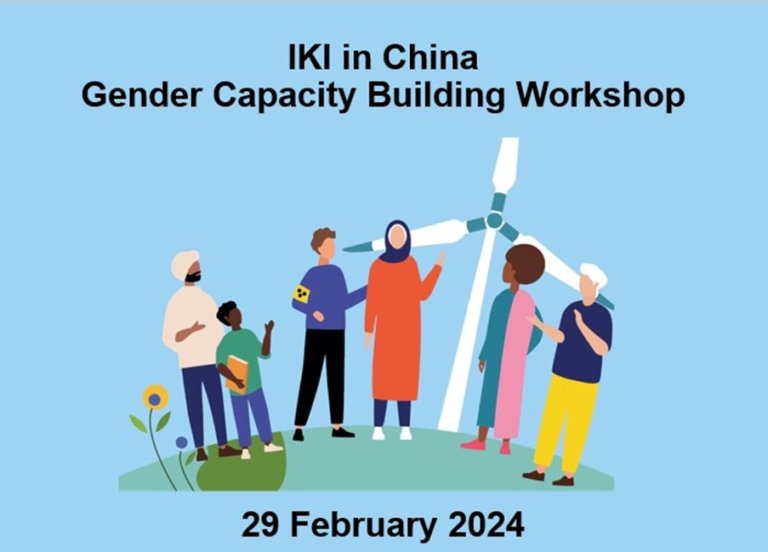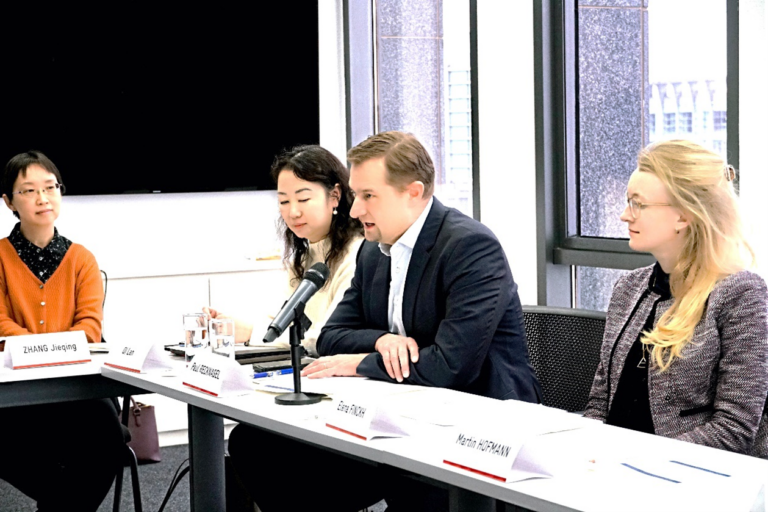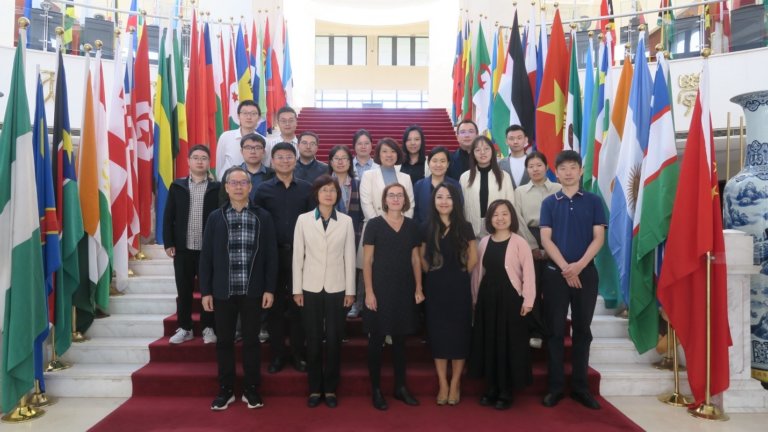On 9 July, representatives of three local pilots on climate finance – Xixian New Area of Shaanxi province, Tianfu New Area of Sichuan province, and Liangjiang New Area of Chongqing city – agreed on a strategic cooperation framework amongst these pilots and signed an MoU on climate finance. Selected by MEE in 2022 as the first patch of local pilots, their work in climate financing and investment has been supported by the Sino-German Cooperation on Climate Change – NDC implementation project.

Hosted by the Provincial Department of Environment and Ecology of Shaanxi, the climate finance symposium was jointly implemented by CECEP Hundred Technical Service (Beijing) Co., Ltd., Natural Resources Defense Council (NRDC), and Deutsche Gesellschaft für Internationale Zusammenarbeit (GIZ) GmbH.
The symposium opened with speeches by Ms Ai Chen, party member and deputy director of the Xixian New Area Development and Management Committee and Mr Hao Yanwei, party member and deputy director general of Provincial Department of Ecology and Environment of Shaanxi. This was followed by Mr Ding Hui, division director of General Affairs, Department of Climate Change, Ministry of Ecology and Environment (MEE) and Ms Li Xiaowen, second counselor of Policy Research Bureau of the State Financial Regulatory Administration. Finally, Ms You Mengna, deputy country director of NRDC China, gave an opening speech highlighting international cooperation.
During the symposium, Xixian New Area published a series of important pilot documents including “Project Database Standards for Climate Investment and Financing in Xixian New Area (2023)”, “Project Database Management Guidelines of Climate Investment and Financing in Xixian New Area (Test Version)”, and “Database Management Guidelines of Climate-friendly Enterprises in Xixian New Area (Test Version)”.
Representatives of local pilots presented their climate projects and listened to keynote speeches on policy development and best practices for promoting city climate finance. Mr Wang Xiwu, vice director general of the Sectoral Department III of the China Development Bank alluded to how the development finance can support Climate investment and financing. Mr Zhang Xin, chief economist of the National Center for Climate Change Strategy and International Cooperation (NCSC) gave an in-depth insight on “Enhancing the Market Function of the National Carbon Emissions Trading Market and Promoting the Development of Climate Investment and Financing.”
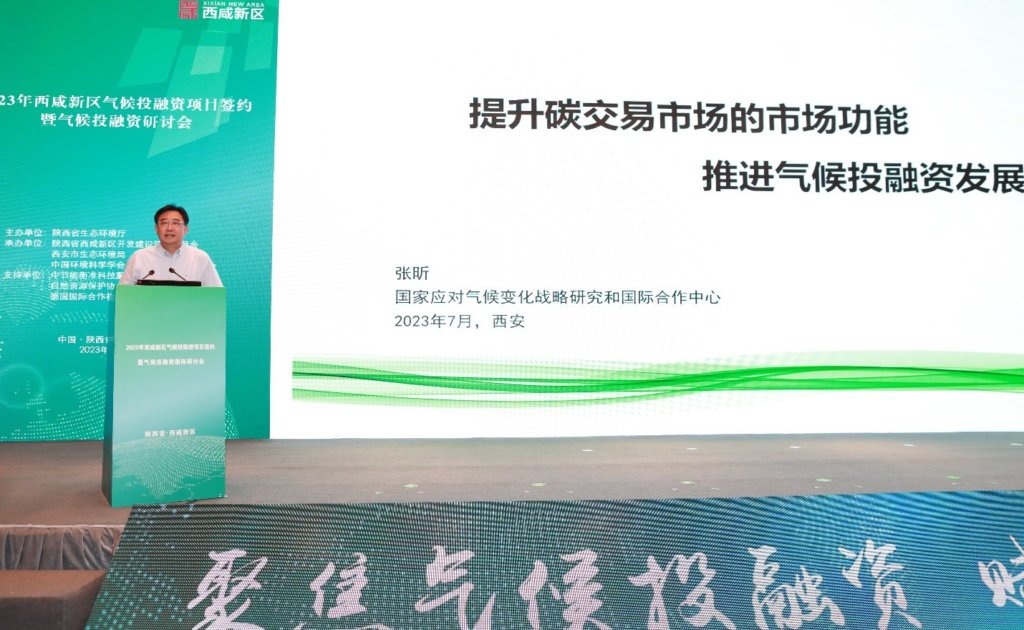
Ms Katharina Lütkehermöller, senior climate finance analyst of New Climate Institute (NCI), presented international good practices on city climate finance through a video recording. She introduced policy tools and examples of climate finance adopted by European cities, including the green municipal bond issued by Stockholm, Sweden, the urban sustainability-linked loan issued by Helsingborg, Sweden, and the adoption of a green/climate budget approach by the Brittany region of France by classifying its government expenditures making use of EU’s taxonomy to support the achievement of its environmental and climate goals.
She also emphasized the need for cities to develop climate finance roadmaps aligned with their countries’ national-level climate goals, identify financing needs, sources of finance, and make full use of their resource endowments to develop and prioritize climate finance projects and attract investors.
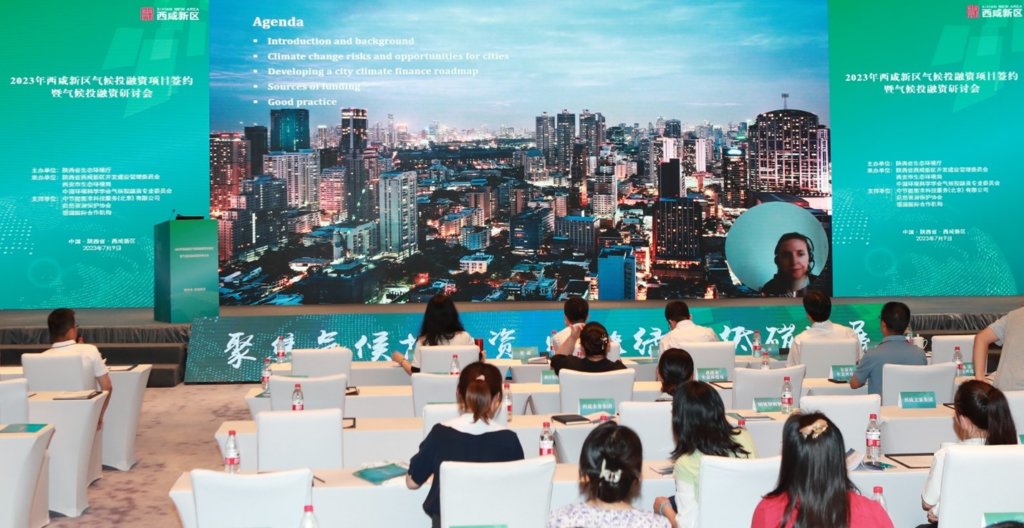
Furthermore, the NDC implementation project will provide the local pilot Xixian New Area with a policy recommendation report on its climate investment and financing action plan to facilitate international policy research exchange.
